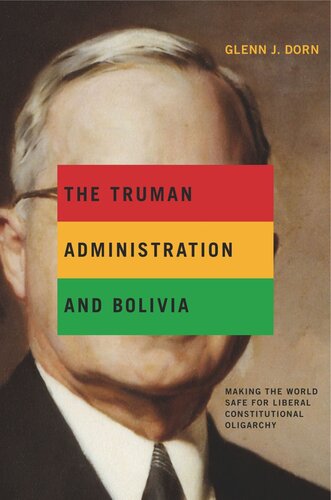

Most ebook files are in PDF format, so you can easily read them using various software such as Foxit Reader or directly on the Google Chrome browser.
Some ebook files are released by publishers in other formats such as .awz, .mobi, .epub, .fb2, etc. You may need to install specific software to read these formats on mobile/PC, such as Calibre.
Please read the tutorial at this link: https://ebookbell.com/faq
We offer FREE conversion to the popular formats you request; however, this may take some time. Therefore, right after payment, please email us, and we will try to provide the service as quickly as possible.
For some exceptional file formats or broken links (if any), please refrain from opening any disputes. Instead, email us first, and we will try to assist within a maximum of 6 hours.
EbookBell Team

4.3
18 reviewsThe United States emerged from World War II with generally good relations with the countries of Latin America and with the traditional Good Neighbor policy still largely intact. But it wasn’t too long before various overarching strategic and ideological priorities began to undermine those good relations as the Cold War came to exert its grip on U.S. policy formation and implementation. In The Truman Administration and Bolivia, Glenn Dorn tells the story of how the Truman administration allowed its strategic concerns for cheap and ready access to a crucial mineral resource, tin, to take precedence over further developing a positive relationship with Bolivia. This ultimately led to the economic conflict that provided a major impetus for the resistance that culminated in the Revolution of 1952—the most important revolutionary event in Latin America since the Mexican Revolution of 1910. The emergence of another revolutionary movement in Bolivia early in the millennium under Evo Morales makes this study of its Cold War predecessor an illuminating and timely exploration of the recurrent tensions between U.S. efforts to establish and dominate a liberal capitalist world order and the counterefforts of Latin American countries like Bolivia to forge their own destinies in the shadow of the “colossus of the north.”